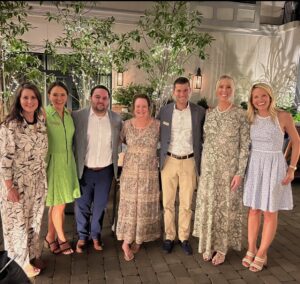Details Are Part of Our Difference
Embracing the Evidence at Anheuser-Busch – Mid 1980s
529 Best Practices
David Booth on How to Choose an Advisor
The One Minute Audio Clip You Need to Hear
Author: Nell Schiffer
Holidays at HIG: Office Hours
 Our team will take a short break on December 25th, December 26th, and January 1st to celebrate with loved ones.
Our team will take a short break on December 25th, December 26th, and January 1st to celebrate with loved ones.
During the remaining days, we’re ready and excited to provide top-notch service as we head into the new year. Whether you have questions, need assistance, or simply want to share some holiday cheer, our team is here for you.
Here’s a quick rundown of our holiday hours:
- Monday, December 25th: Closed for the day
- Tuesday, December 26th: Closed for the day
- Monday, January 1st: Closed for the day
Wishing you a joyous holiday season filled with laughter, warmth, and celebration.
Your team at Hill
Backstage Values Frontstage

Corporate values are often empty. They are usually statements glued to walls or made into stickers. Rarely are company values meaningful enough that people remember them and feel a connection. At Hill Investment Group, we try to live our values in an understated fashion, preferring not to melt them onto a T-shirt but to live them. Please enjoy the six statements below as we share our backstage values in a front-stage fashion.
MAKING FRIENDS IS OUR BUSINESS
Inspired by the old Anheuser-Busch mantra, relationships are at the heart of what we do. Sometimes, friends become clients, and often, clients develop genuine connections with our team. “There will be neither frustration nor failure where there is friendship.”
CHEERS AND THE FOUR SEASONS
Hill Investment Group is a place where we truly know our clients. We know what they like to drink and the preferences that make them who they are. We see clients and serve them in a manner befitting a familiar and high-end experience. We value hospitality, reliability, and excellence.
PATIENCE AND DISCIPLINE
The rewards of the long view are only possible if we can help our firm and clients focus on what truly matters.
CANDOR
We value the truth (no spin) and commit to giving it to one another and our clients, both when it’s easy and hard.
EVIDENCE-BASED INVESTING EVANGELISTS
We don’t choose gunslingers and gurus to manage the real wealth of clients. We favor repeatable, reliable, robust forms of investment returns.
FUN GOES WITH BUSINESS
We take our work seriously and have fun in the process! We celebrate our wins and recognize life and work milestones at every chance.
Cheers to Malissia

This past Saturday, along with 100+ clients, we celebrated one of our team members Malissia Johnson. After 25 remarkable years, Malissia will be retiring as founder of Emerald Spectrum Advisory at the end of this year. Julia Humphrey, her long-term team member, will be the lead advisor in HIG’s Nashville office.
Malissia established her firm in 1998 with a vision to provide an extraordinary planning experience while making each client feel like family. Over the past quarter century, she has succeeded by exceeding clients’ expectations and putting their interests first. Her legacy will live on through the many clients whose financial lives she has impacted and through the exceptional team she has cultivated.
While we will miss her wisdom and caring nature, we know she has more than earned this next chapter. Malissia’s retirement party was a time for friends, family, team members, and clients to come together to reminisce, express gratitude, and wish her the best in her well-deserved retirement. The night was filled with good food, music, and many stories that exemplify her incredible 25-year journey. We had a blast this special evening honoring an extraordinary woman, her career, and, most importantly, the relationships she’s built.
Cheers, Malissia!

